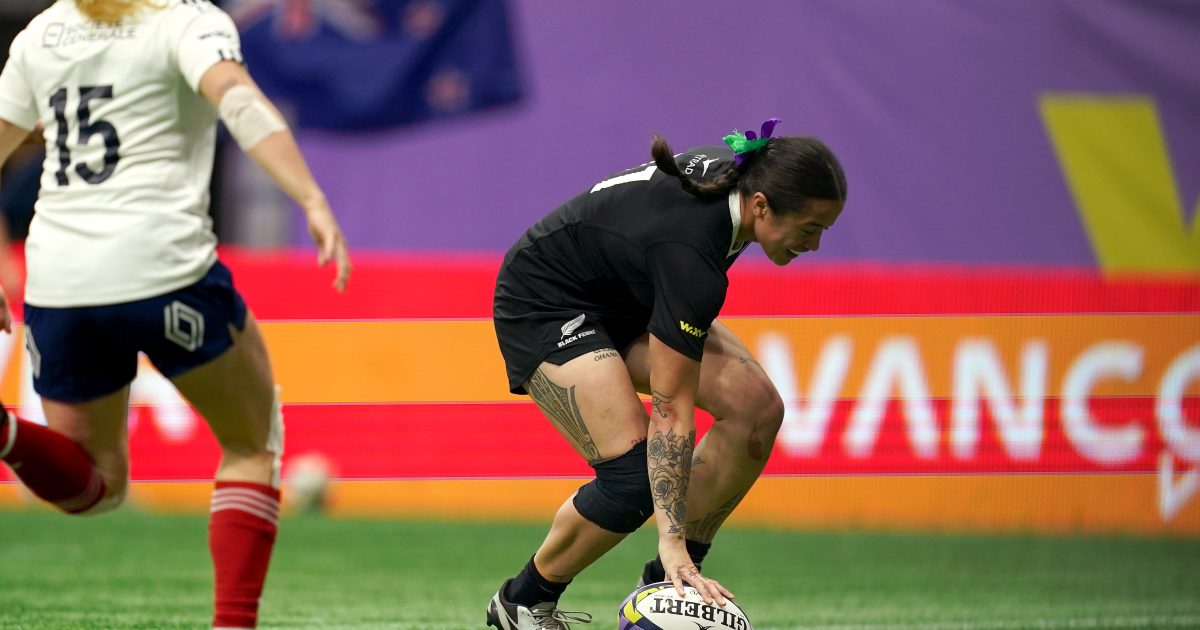Katelyn Vahaakolo scores hat-trick as New Zealand beat France in WXV 1

The Black Ferns ended their 2024 WXV 1 campaign with a seven-try win over France to leave Vancouver with a 39-14 victory at BC Place.
After losing their two previous WXV 1 matches to Ireland and England, in addition to their warm-up fixture against the Red Roses, New Zealand rallied to draw a line in the sand over their three-game losing streak with an energetic second-half display in Canada.
France started the competition with a loss to hosts Canada but went on to win 22-14 against the USA in the second round to take one win from the three matches. Last year’s competition saw Les Bleues beat the World Champions 18-17, but the Black Ferns were firmly in control of the scoreline this time out.
New Zealand’s early possession was rewarded with the opening try through Ayesha Leti-I’iga in the seventh minute, and their lead was quickly doubled by Katelyn Vahaakolo for her first of three tries of the afternoon.
With Hannah King unable to convert either score, France’s try from a deceptive and bulldozing run by Emeline Gros, converted by Lina Queyroi, made the scoreline 10-7.
From an offload from Kate Henwood, Black Ferns lock Alana Bremner was able to charge through the French defence to add their third inside 20 minutes, King unable to convert again.
France had a chance to score from a crossfield kick by Lina Queyroi, but Gros was unable to gather the ball, resulting in a knock-on.
Les Bleues remained camped out in the 22, and went on to score their second as captain Manae Feleu spotted a gap and went over after picking the ball up from the base of the ruck.
Despite New Zealand’s dominance in the opening ten minutes, possession shifted from minutes 20-30 with France holding 89%, and Queyroi’s conversion drew the scoreboard to within one point.
France rued an opportunity to put an end to the half, prop Assia Khalfaoui hoofing the ball down the pitch with the clock in the red which allowed New Zealand to continue to orchestrate their attack. Vahaakolo scored her second in the 42nd minute after a slick passage of play from the backs sent her over for the team’s fourth.
While New Zealand went into the break with a 20-14 lead, they left eight points out on the pitch in the first half as King failed to convert any of their first four tries.
Vahaakolo came into the second half firing and crossed the line for her hat-trick just three minutes in. The winger darted through an opening in the French defence after some fantastic handling from Liana Mikaele-Tu’u and then Ruahei Demant to provide the offload, which was made a seven-pointer as King added her first conversion of the match.
Within minutes the Black Ferns had scored again, Kaipo Olsen-Baker muscling over the line with two French defenders on her back to add their sixth, converted by King to make the scoreline 34-14.
France lost Seraphine Okemba to a yellow card in the 52nd minute for head contact in a tackle on Kennedy Tukuafu, but the blindside flanker did not return to the pitch after the collision. France were forced to make changes through HIA substitutions; Okemba, Feleu, and Cyrielle Banet among those who were required to leave the field for medical assessment.
With France a player down in the scrum, winger Marine Menager joined her sister Romane in the scrum to add an extra body.
New Zealand made use of their one-player advantage as they scored their seventh and final try, Tanya Kalounivale burrowing over the line supported by Olsen-Baker in the 57th minute. The Black Ferns stood firm in defence to deny France any points in the second half and see out the match with a strong 80-minute performance.






















































